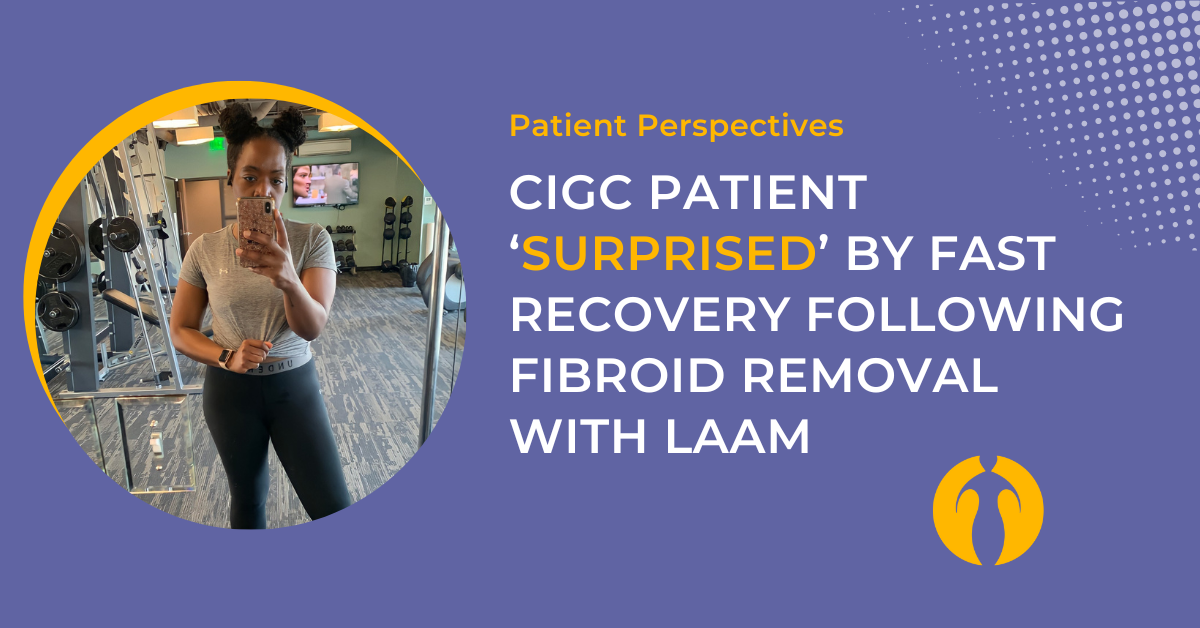- September 10, 2015
Will My Uterus Fall Out Of My Body?

What is Pelvic Organ Prolapse? Do I Have It?

As women age, the changes that can happen to her body are too vast to count. Just when you think you are past the point of bleeding and pain each month, you realize you aren’t done with gynecological challenges just yet. Aging brings menopause, increased risks of GYN cancers, and the possibility that your uterus, bladder or rectum will start to sag into your vagina.
Will My Uterus Fall Out?
While your uterus and other organs will not fall out of your body, the weakening of your pelvic floor muscles can make it feel and appear as though this may happen. The most common and bothersome symptom is pressing of the uterus or other organs against the vaginal wall. The pressure on your vagina may cause minor discomfort or problems in how your pelvic organs work, and may cause discomfort during sex.
The symptoms of prolapse will vary based on the degree and the type of prolapse; patients may suffer from one or more symptoms with varying severity, though many women who have pelvic organ prolapse do not have symptoms.
Do I Need Pelvic Organ Prolapse Surgery?
“Depending on the severity of your pelvic organ prolapse symptoms, minimally invasive GYN surgery may be the best treatment,” said Dr. Paul MacKoul, MD, The Center for Innovative GYN Care. “Some patients find that their symptoms are manageable and prefer not to treat them. Others decide that surgical management is the best option for them as conservative treatments are not effective for long-term relief. However, surgery is typically delayed until women are finished with childbearing.”
Women with symptoms for whom conservative management options are unsuccessful can seek a minimally invasive pelvic organ prolapse surgery. Surgical outcome can depend upon the severity of symptoms, extent of prolapse, and the patient’s expectations.
Surgical Procedures Depend On The Type Of Prolapse:
- Cystocele or anterior repair; also known as repair of the bladder prolapse. Cystocele is performed through the vagina. The vaginal wall, and the tissue between the bladder and the vagina are reconstructed. This can be done with and without the use of synthetic mesh.
- Rectocele or posterior; also known as repair of rectum prolapse. This repair can be performed through a vaginal approach and involves the reconstruction of the vaginal wall and tissue between the rectum and the vagina. This can be done with and without the use of synthetic mesh.
- Apical repair refers to the repair of uterine prolapse or prolapse of the top (apex) of the vagina. The most commonly performed techniques for apical prolapse require a hysterectomy, because the apex is elevated and the vaginal cuff is fixed to a supporting ligament.
CIGC surgical specialists have undergone extensive training, are board-certified and fellowship-trained in the advanced techniques and procedures to surgically treat pelvic prolapse.
Transvaginal Mesh Controversy
Due to the potential negative long-term effects, CIGC surgeons do not use synthetic mesh during cystocele and rectocele repair. The FDA has issued a warning against the use of transvaginal mesh. The biggest complaint is due to mesh erosion. Additional surgery is needed to remove the mesh. The rate of mesh erosion has been shown to be as high as 30 percent. While most patients with mesh erosion do not have symptoms, the most important concern regarding transvaginal mesh is the development of severe pelvic pain and pain with sex.
Choose a Minimally Invasive GYN Specialist for Your Pelvic Organ Prolapse Surgery
Specialists have a high volume of patients, making for a high level of experience. Learn more about your options. There is nothing more important than being well-informed about possible treatments and what they entail. CIGC surgeons Dr. Paul MacKoul, MD and Dr. Natalya Danilyants, MD assess your individual case, what you are experiencing and whether or not you are planning to have children, and then recommend the best possible treatment options.
BOOK A CONSULTATION
Surgical specialists can often see patients sooner because they are focused entirely on surgery. Each patient gets detailed, in depth attention from Dr. Danilyants and Dr. MacKoul. This personalized care helps patients understand their condition and the recommended treatment so that they can have confidence from the very start. Our surgeons have performed over 20,000 GYN procedures and are constantly finding better ways to improve outcomes for patients.
Book a consultation today with Dr. Paul MacKoul, MD or Dr. Natalya Danilyants, MD.
REVIEWS
Dr. Natalya Danilyants Reviews
CIGC TRAVEL PROGRAM
Even if you are not from the DC area, many patients travel to The Center for Innovative GYN Care for our groundbreaking procedures. We treat women from around the world who suffer from complex GYN conditions.
Learn more in our travel program.
- Read the full article:
- Posted in: GYN Surgery








